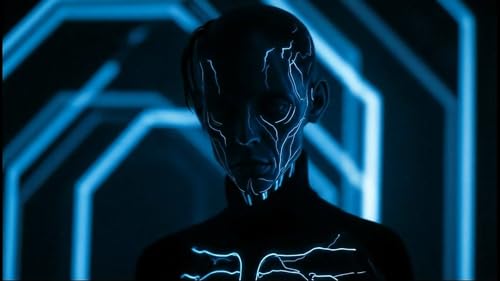im Rahmen der internationalen Studienwoche an der Hochschule LuzernSehr geehrte Damen, sehr geehrte Herren,Sie hören’s schon an der Anrede: Ich gehöre einer untergehenden Welt an. Tatsächlich ist das ein Thema, das mich seit langer, langer Zeit begleitet – und wenn Sie sich in dieser Studienwoche mit der »Frage der sozialen Arbeit angesichts antidemokratischer Gesellschaftstendenzen« beschäftigen, dann sehen wir, dass eine dunkle Woke über uns heraufgezogen ist, aber es gibt kaum jemanden, der plausibel erklären kann, warum das eigentlich passiert ist. Dieses große Warum zu erhellen und der Frage nach den Gründen für das grassierende Unbehagen in unserer Kultur nachzugehen, wäre die Aufgabe – denn ist die Krankheit unbekannt, sieht’s mit der Behandlung doch eher schlecht aus. Da laboriert man halt an den Symptomen… Also: Warum? Und was ist da eigentlich passiert? Von Goya gibt es einen wunderbaren Bildtitel, nämlich: »Der Schlaf der Vernunft gebiert Ungeheuer«. Wenn wir das für einen Moment einmal, als gedankliche Hypothese, stehenlassen, dann wäre abzuleiten, dass sich unsere derzeitigen Kalamitäten auf einen Schlaf der Vernunft zurückführen lassen. Das führt uns gleich zu einem weiteren großen Psychologen, Nietzsche nämlich, der den wunderbaren Gedanken notiert hat: »Wer mit Ungeheuern kämpft, mag zusehn, dass er nicht dabei zum Ungeheuer wird. Und wenn du lange in einen Abgrund blickst, blickt der Abgrund auch in dich hinein.« Das ist, wie ich denke, eine präzise Beschreibung unserer heutigen politischen Diskurse. Denn wenn Sie sich umschauen, dann sehen Sie, ob links oder rechts, lauter Menschen, die sich an irgendwelchen Ungeheuern festhalten – und die sich dabei selbst, ganz unversehens, dem annähern, was sie da eigentlich bekämpfen wollen. Man könnte das, mit Hans Magnus Enzensberger, einen »molekularen Bürgerkrieg« nennen – in jedem Fall haben wir es mit einem Verlust an Zivilität zu tun, den ich in meinem ganzen, nicht mehr ganz jungen Leben so zuvor nicht habe feststellen können. Aber ich will mich hier gar nicht mit Details aufhalten, sondern möchte gleich ins abgründige Thema hineinspringen: Was ist passiert? Oder genauer: Was haben wir eigentlich verschlafen? Wenn wir das so nehmen, wird die Geschichte plötzlich interessant. Denn es stellt sich die Frage, ob die Erzählung, die wir als Wirklichkeit ausgeben, überhaupt noch Relevanz besitzt – und Sie mit lebbaren, praxistüchtigen Handlungsoptionen ausstattet. Hier schon setzt mein erster Zweifel an. Denn wenn Sie einen Zeitgenossen, genauer: einen Intellektuellen fragen, wie er sich unsere Welt in 10, 20 Jahren wohl ausmalen wird, wird er Ihnen entgegnen, dass er schön froh wäre, wenn er das nächste Jahr überblickte. Ein Beispiel: ich habe vor nicht allzulanger Zeit, im Rahmen eines Symposions zur Zukunft der Bildung, vor gut 100 Bildungsphilosophen einen Vortrag gehalten – und das Bemerkenswerte war: ich war der einzige, der eine positive Vision entworfen hat – wohingegen die Titel der anderen Vortragenden lauteten: Die Zukunft schrumpft, oder ärger noch: Wer hat mir meine Zukunft gestohlen? Ruft man sich ins Gedächtnis, dass die Aufgabe des Bildungsphilosophen darin bestünde, sich über der Lernen der Zukunft im Klaren zu sein, ist das Schrumpfen der Aufmerksamkeitsspanne auf die reine Gegenwart, ärger noch, das Abgleiten ins Ressentiment, fast grotesk – kann eine jede Rede darüber nur wortreiche Maskierung einer Unterlassungssünde sein. Diese Gedankenblockade artikuliert sich als Lähmung, so als wachte man gerade aus einem Alptraum auf. Ja, es scheint geradezu, als ob viele Menschen die Gegenwart überhaupt als eine Art Alptraum auffassten – was ein Philosoph auf die paradoxe Formel gebracht, nämlich, dass es einfacher sei, sich das Ende der Welt vorzustellen, als das Ende des Kapitalismus. So betrachtet erscheint die Apokalypse, das Ende der Welt, wie eine Wunschvorstellung ist – der Wunsch, dass dieser Alptraum, aus dem es kein Entkommen zu geben scheint, endlich ein Ende haben möge.Aber ich will mich gar nicht lange mit Spekulationen aufhalten. Ich würde behaupten, dass der tiefste Grund für unser Unbehagen die Erschütterung ist, die mit der digitalen Kultur einhergeht – und weil ich einige Bücher zur Philosophie und zur Kulturgeschichte der Maschine geschrieben habe, bin ich mir deutlich bewusst, dass unseren Eliten noch nicht einmal in Ansätzen klar ist, was ihnen da widerfahren ist. Dies nebenbei ist der Grund, warum die Grundsätze, die man Ihnen in der Schule hat beibringen wollen, keine wirkliche Vorbereitung sind für das, was Ihnen in den nächsten Jahren bevorstehen wird. Wenn wir uns vor Augen halten, dass die KI einen nicht geringen Teil unserer White Collar Jobs überflüssig machen, genauer: sie in den Arbeitsspeicher, ins Museum der Arbeit überführen wird, ist klar, dass plötzlich große Teile unserer Gesellschaft mit einer höchst ...
Show More
Show Less
 Feb 20 202651 mins
Feb 20 202651 mins Jan 30 20261 hr and 7 mins
Jan 30 20261 hr and 7 mins Jan 28 202638 mins
Jan 28 202638 mins Jan 19 20261 hr and 46 mins
Jan 19 20261 hr and 46 mins Jan 11 20261 hr and 36 mins
Jan 11 20261 hr and 36 mins Nov 14 202527 mins
Nov 14 202527 mins Oct 10 202528 mins
Oct 10 202528 mins Jul 19 20251 hr and 10 mins
Jul 19 20251 hr and 10 mins
